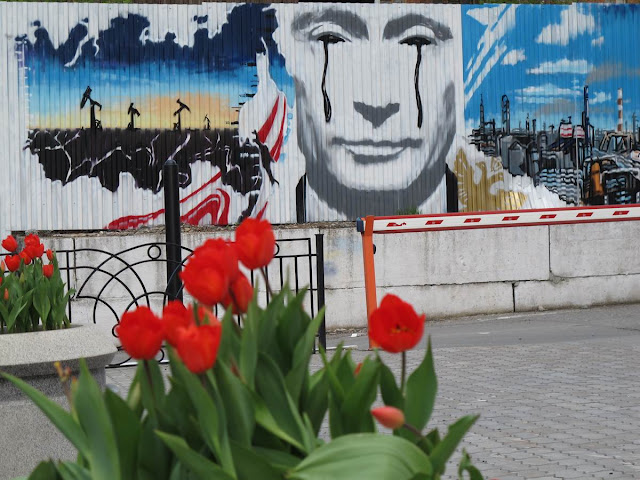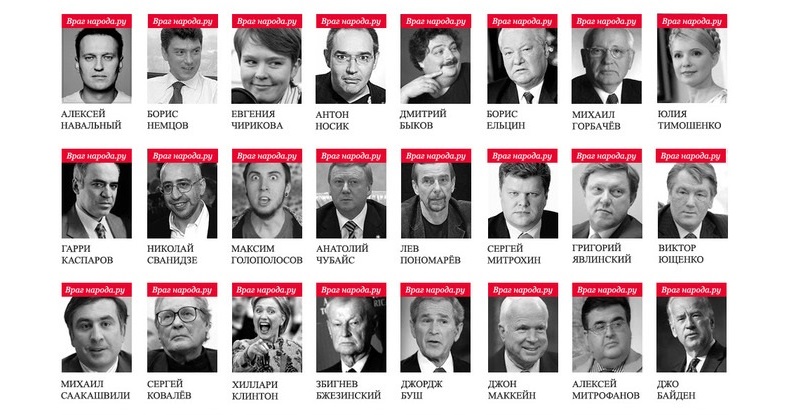Highlights from Putin’s speech to the Federal Security Service board meeting on 26 March 2014:
I would like to begin by saying that, as you all know, the past year was not an easy one…. We witnessed growing tensions in the Middle East and a number of other areas of the world, while a state coup provoked civil war in Ukraine.
Putin then highlights the fact that refugees from Ukraine are flooding into Russia, though he is unclear on numbers:
We have already received and continue receiving thousands, even hundreds of thousands of refugees and are doing all we can to prevent a humanitarian catastrophe.
He brings this up again later, saying:
The Russian-Ukrainian border requires our special attention, of course. The situation there is complicated: thousands of people are trying to escape from the extended armed conflict in southeast Ukraine and are crossing over to Russian territory, sometimes even without their basic documents.
It is important to continue ensuring the unhindered passage of refugees and movement of vehicles with humanitarian cargo. At the same time, we need to reveal those who voluntarily took part in punitive actions against peaceful residents, who are trying to cover their tracks or are planning crimes on the territory of the Russian Federation.
Putin then continues the rhetoric of Russia as a fortress besieged by outside forces:
However, it is obvious that nobody has ever managed to intimidate this country or put pressure on it, and nobody ever will. We have always had and always will have a proper response to all internal and external threats to national security.
He highlights international terrorism:
You are also aware of the fact that citizens of Russia and other CIS states are being trained at the so-called hot-spots, including within groups of the Islamic State on the territory of Syria and other countries. Later they may be used against us, against Russia and its neighbours.
It is therefore vitally important to take additional measures to destroy the terrorists’ international ties and resource bases and block their entry to and exit from Russia. They should not be able to move between regions or penetrate the new regions of the Russian Federation – Crimea and Sevastopol.
He also warns of potential attacks at “international events” in Russia this year, including the Victory Day celebrations on 9 May.
The other thing that stood out was Putin’s warning on the so-called opposition movement in Russia.
Western special services continue their attempts at using public, non-governmental and politicised organisations to pursue their own objectives, primarily to discredit the authorities and destabilise the internal situation in Russia. They are already planning their actions for the upcoming election campaigns of 2016-2018.
He later noted:
…it is pointless entering into a discussion with those who are operating on orders from the outside in the interests of some other country rather than their own.
Therefore, we will continue paying attention to non-governmental organisations that have foreign funding sources; we will compare their stated goals with their actual activities and terminate any violations.
Putin also highlighted the problem of extremism and other crimes on the internet in Russia:
We must continue efforts to rid the Russian cyberspace of illegal, criminal materials, more actively use modern technologies for this purpose and take part in creating an international information security system.
Putin’s speech was a good indicator of what the authorities will be focusing on in the next year. Here are some things to watch for based on what Putin said yesterday:
1. A further crackdown on NGOs operating in Russia using the “foreign agents” law.
2. More arrests and court cases against Russia’s opposition politicians.
3. Further tightening on the Internet in Russia, and charges of extremism for bloggers etc.
4. More accusations of treason and espionage against Ukrainian citizens and/or ethnic Ukrainians living in Russia.
"Natalya Romanenko, head of a Ukrainian choir in Khabarovsk, has been stripped of her job, interrogated by the FSB.."
— Kresy-Siberia (@KresySiberia) March 26, 2015
5. Arrests of Crimean Tatars for “extremism”, and/or for plotting terror attacks ahead of the “international events” this summer.





